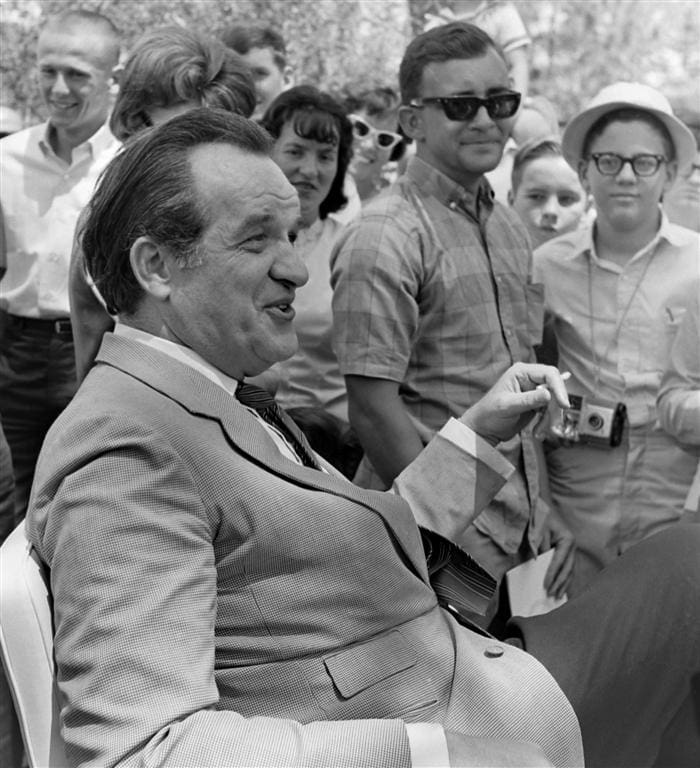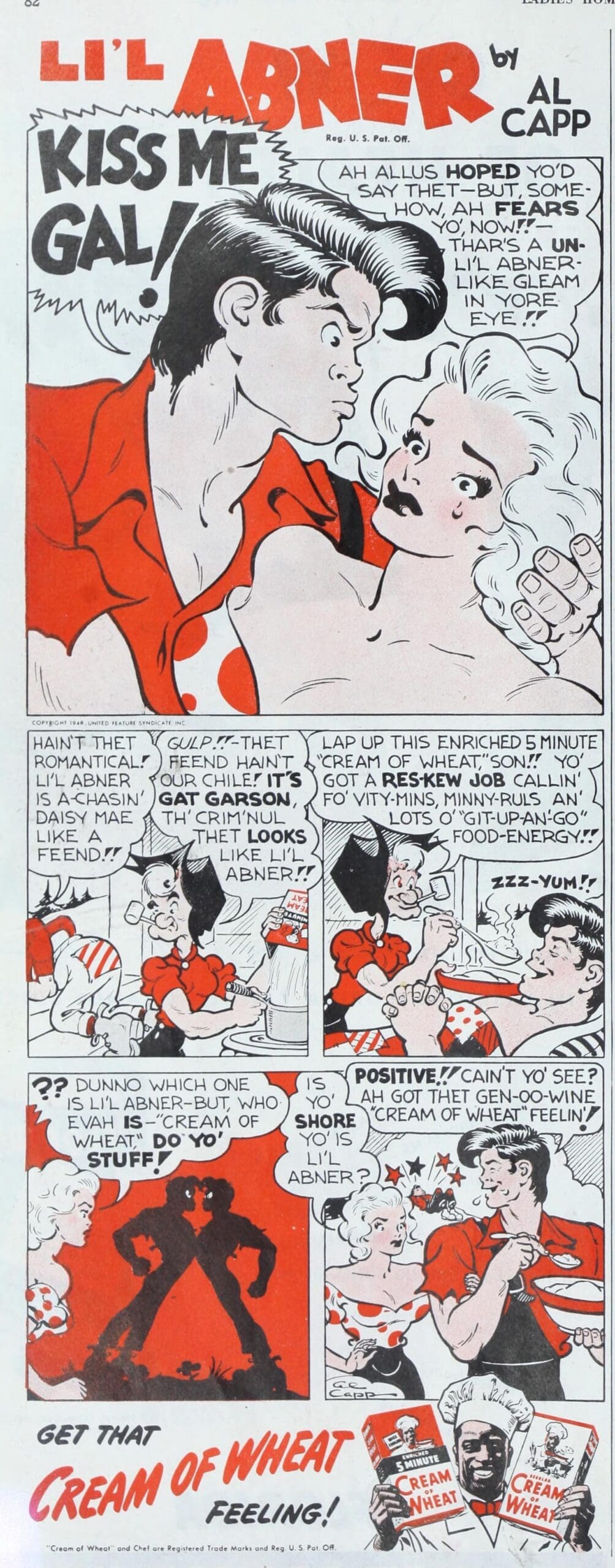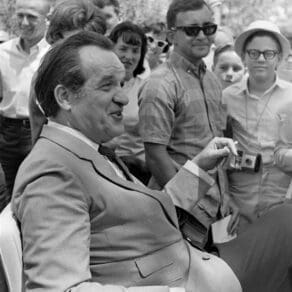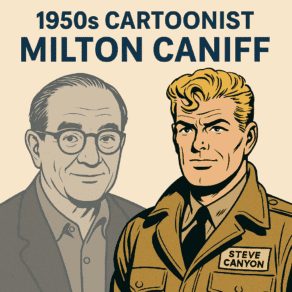
Al Capp, born Alfred Gerald Caplin on September 28, 1909, in New Haven, Connecticut, was an influential American cartoonist renowned for his satirical comic strip “Li’l Abner.”
“Li’l Abner,” which ran from 1934 to 1977, was a cornerstone of 1950s cartoonist culture. Set in the fictional Appalachian town of Dogpatch, the strip humorously critiqued American society and politics, featuring memorable characters like Li’l Abner Yokum and his love interest Daisy Mae Scragg.
Capp’s colorful cast of characters and clever commentary on social and political issues, including government corruption and consumerism, resonated with millions of readers nationwide. The strip’s popularity led to various adaptations, including a Broadway musical and several films.
Despite his success, Capp was a polarizing figure due to his conservative political views and controversial persona. Allegations of misconduct later surfaced, affecting his reputation.
In his later years, as the popularity of comic strips waned in the 1960s and 1970s, Capp continued to produce “Li’l Abner” until his retirement in 1977. He passed away on November 5, 1979, leaving behind a lasting legacy in American humor and satire. “Li’l Abner” remains a cherished classic, solidifying Capp’s status as a prominent figure in 1950s cartoonist history.
“Amoozin’ But Confoozin’
is a short animated film released in 1944. It is part of the “Cartune Classics” series, produced by Famous Studios, which was the animation division of Paramount Pictures. The film is notable for featuring characters from Al Capp’s comic strip “Li’l Abner.”
In “Amoozin’ But Confoozin’,” characters from the “Li’l Abner” comic strip, including Li’l Abner Yokum, Daisy Mae Scragg, and Mammy Yokum, are brought to life in animated form. The plot likely involves humorous situations and adventures typical of the “Li’l Abner” comic strip, which often satirized American culture and politics.
Li’l Abner by Al Capp – Cream of Wheat, 1948







Leave a Comment